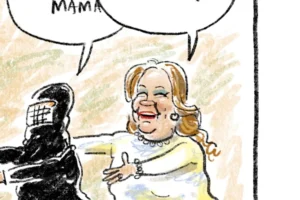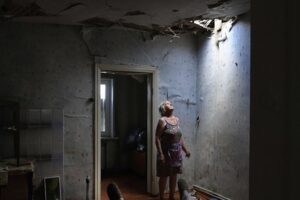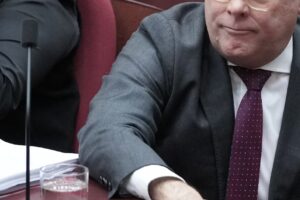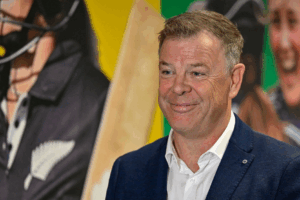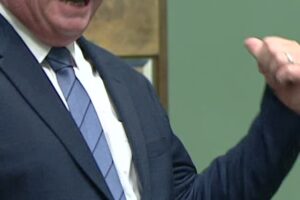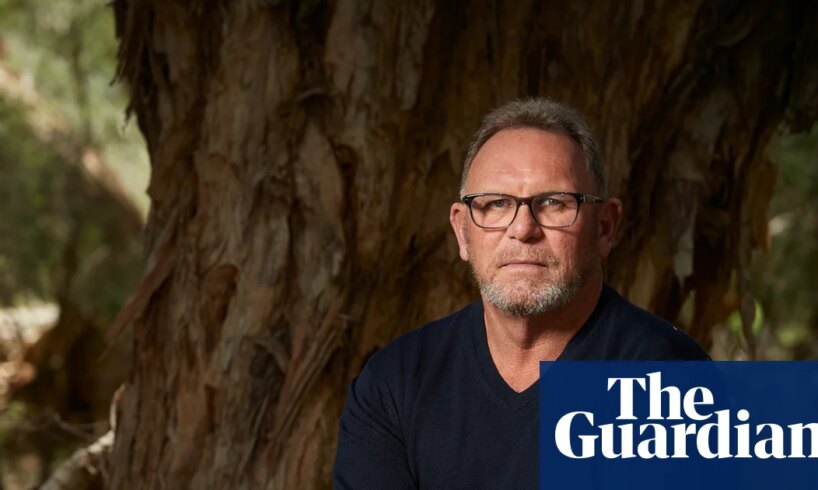
The federal government should listen to the concerns of child sexual abuse survivors and allow Australian honours to be rescinded after perpetrators and enablers have died, campaigners say.
Awards given under the honours system can be rescinded while the recipient is still alive. Recipients can also be recognised posthumously. But once someone who received an honour has died, it cannot be revoked under the current rules.
Advocate Maggie Dawkins has written to the Department of Prime Minister and Cabinet (PM&C) and the governor general’s office on behalf of survivors of child sexual abuse seeking to have awards rescinded.
She highlighted the case of Roy Wenlock, whose abuse and “sexual predation” of teenage boys in the mid-1970s at the St Andrews school hostel in the rural community of Katanning, Western Australia, was detailed in a 2011 inquiry set up by the WA government. Wenlock was awarded the Australian Sports Medal in 2000.
Sign up: AU Breaking News email
Peter Blaxell, who oversaw the WA inquiry, found that “on most … occasions, public officials took no action in response to the allegations” of sexual abuse at the hostel.
They also failed to respond to allegations that another hostel warden, Dennis John McKenna, had been abusing boys in the hostel between 1975 and 1990. McKenna was convicted on three occasions of abusing multiple teenage boys. Dawkins was a government employee in Katanning at the time and had tried to alert authorities to McKenna’s abuse.
Among those public officials criticised in the Blaxell inquiry was Colin Lindsay Philpott, recipient of a medal of the Order of Australia in 2003 for “service to the rural communities of Western Australia, particularly as Chairman of the Country High School Hostels Authority”. The inquiry found he was “well aware” of the abuse allegations in his capacity as chair and his response was “totally inadequate”.
Both Philpott and Wenlock are now dead. Dawkins has received no response to her letters.
She said the federal government “must stop buck-passing and change the honours system to better reflect the values of our community”.
‘The too-hard basket’
McKenna was first convicted of offences against five young men in 1991, including John Jolley.
“Stop for a minute and think about the lives that have been ruined,” Jolley, now 57, said. “The government seems to put it into the back drawer, or the too-hard basket. If the government were to step up now and do something like this, it’s a step forward for all sexual abuse victims.”
John Jolley at Melaleuca Grove in South Perth. He was a victim of Dennis John McKenna, who was convicted in 1991. Photograph: Frances Andrijich/The Guardian
Kaye Anderson had five sons, three of whom had spent time in the hostel. Her eldest son, Raymond, pressed charges along with Jolley in 1991. He died in 1998 after attempts at taking his own life.
The effects of Raymond’s abuse and death ricocheted through the whole family: just one of Anderson’s five sons is still alive.
“McKenna destroyed my family,” Anderson said. She said she was “disgusted” to know that people who ignored reports of his conduct retained their honours. Removing them would “give a sense of relief to myself, not only myself, but other victims,” she said.
“It would be a huge win for us. It doesn’t bring back those that we have lost, but at least we’ve fought on, being the voice for those that are no longer here.”
‘Baffling’ resistance to change
Chris Stoker has campaigned for years for the removal of the honour bestowed on Maxwell Arthur Howell, the headteacher of Brisbane grammar school between 1965 and 1989.
Howell was made a member of the Order of Australia in 1986 for services to education. He died in 2011. The royal commission into institutional responses to child sexual abuse found Howell failed to act when he was told that Kevin Lynch, a counsellor at the school between 1973 and 1988, had sexually abused a child.
Six years of correspondence, seen by Guardian Australia, between Stoker and MPs, PM&C, the governor general’s office and the Council for the Order of Australia show contradictory and divergent reasons have been given for not changing the honours system rules.
After Stoker’s case was taken up last year by then Labor MP Graham Perrett, the council said in a statement, echoing arguments it has made previously, that the order was “a living society of honour. As such, upon death, individuals are no longer members”.
skip past newsletter promotion
Sign up to Breaking News Australia
Get the most important news as it breaks
Privacy Notice: Newsletters may contain information about charities, online ads, and content funded by outside parties. If you do not have an account, we will create a guest account for you on theguardian.com to send you this newsletter. You can complete full registration at any time. For more information about how we use your data see our Privacy Policy. We use Google reCaptcha to protect our website and the Google Privacy Policy and Terms of Service apply.
after newsletter promotion
The council and the governor general have on multiple occasions bestowed honours on people who have died. Stoker said he saw no reason why the reverse couldn’t apply.
“The amount of effort that they have gone to, to say ‘no’ to removing a man who knowingly harboured a paedophile, or made a very, very poor judgment call to say ‘it’s not in my interest to expose a paedophile’, is insane,” Stoker said.
Stoker’s efforts caused the issue to be raised in Senate estimates by Labor minister Tim Ayres in 2020 and 2021, but yielded no change to the process.
In the past 12 months, the Greens senator David Shoebridge has taken up the issue and asked questions about it three times in Senate estimates, including on Tuesday.
The secretary to the governor general, Gerard Martin, responded that the office had engaged with PM&C on multiple occasions but had not yet reached a conclusion.
Shoebridge said the government’s resistance to changing the rules was “baffling”.
“The government could at any time draft amendments to allow the posthumous removal of awards where the removal is justified,” he said.
“When someone who abused children continues to have their name honoured by the nation, it sends a devastating message to survivors that they are not believed or respected.”
A spokesperson for the governor general’s office and the Council of the Order of Australia said the council had “given the issue of termination or cancellation of honours where the recipient is no longer living careful consideration” and referred to its 2024 statement.
“The office and the Council of the Order of Australia understands the distress that these important and sensitive issues are causing in the community and is actively working with the Department of the Prime Minister and Cabinet, which has responsibility for honours policy, to find a resolution,” the spokesperson said.
“The governor general has no role in initiating or approving any changes to the constitution for the Order of Australia. The governor general (as with her predecessors) acts on recommendations made by the Council of the Order of Australia in relation to any awards.”
A spokesperson for PM&C said the department “acknowledges the ongoing hurt and trauma experienced by victims of child sexual abuse and their families”.
“We continue to work closely with the office of the official secretary to the governor general and the council for the Order of Australia to identify possible solutions to this complex but important and sensitive matter.”
In Australia, the crisis support service Lifeline is 13 11 14. Children, young adults, parents and teachers can contact the Kids Helpline on 1800 55 1800, or Bravehearts on 1800 272 831, and adult survivors can contact Blue Knot Foundation on 1300 657 380. Other international helplines can be found at befrienders.org and Child Helplines International
